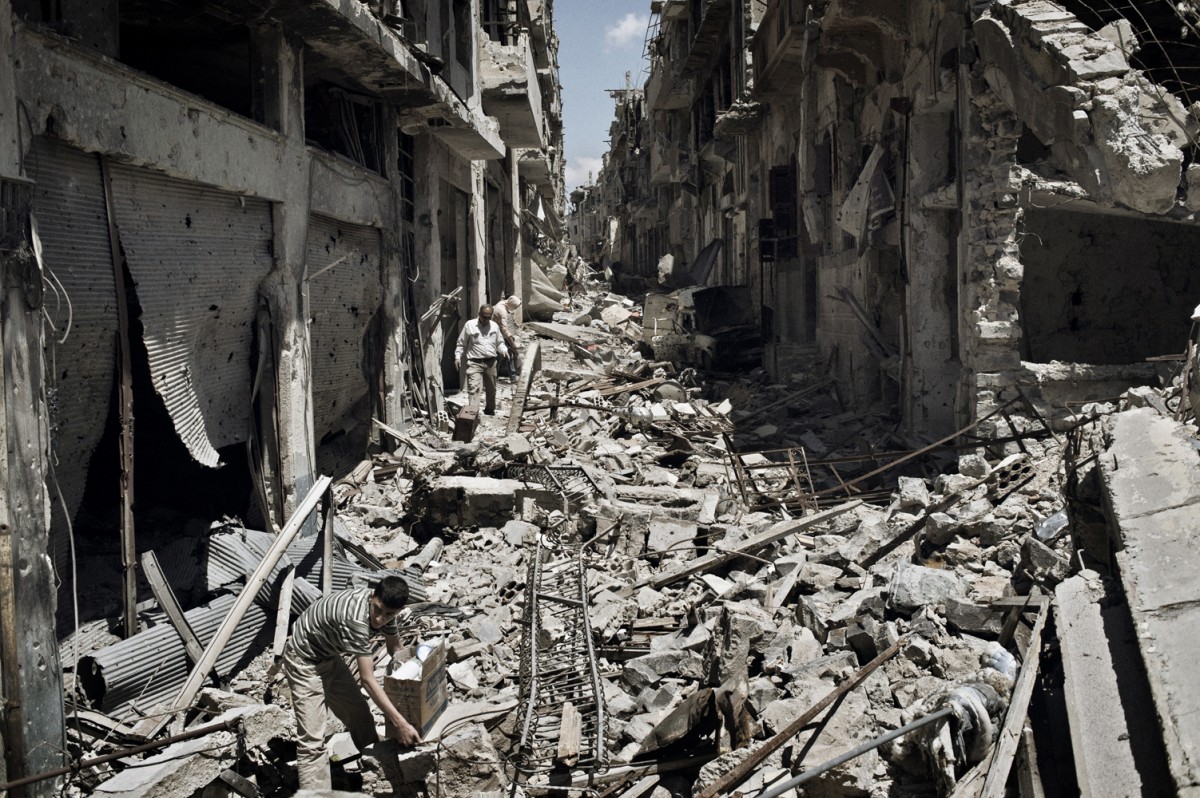Syria, March 15

Six years, today.
And I am still here.
Still in Turkey, on the border. Still getting ready to be smuggled in. But there is nobody around anymore, only rain and beggars. These kids, grabbing your arm.
Nothing else.
There’s only the war.
In some way, there aren’t even Syrians anymore. And not only because so many of them are dead, or in Europe: but because nobody, here, talks of Syria anymore. Six years after the first protests against Assad, the opposition has yet to find a structure. A strategy. It has only guns. All the most brilliant activists have been killed. One by one. Those who are still alive are busy with aid. With flour, water. Fuel. Nothing more. But that doesn’t mean they are giving up: across the frontline, in the end, there are but warlords.
Just like here.
Assad, too, has no plan for Syria. Only a plan for power.
How many times I have been looking at Aleppo from here. From this same spot. The blasts, the smoke. Now it’s all quiet. Now it’s all dark, all black. There isn’t a light: it’s all dead.
That’s Syria, six years on: a country where airstrikes are a proof of life.
It was a rainy night like tonight, the night I arrived here for the first time. Thinking, like most other journalists, that was only a matter of a few weeks. As in Libya. As in Egypt. Then, one by one, everybody left. Some of them are dead, now. Some in rehab. None of us has ever talked of those days again.
Often enough, we have never talked each other again.
And there is only this silence, now. This feeling of stagnant life. Of stranded life, while the others’ goes on. What changes is only the number of your books, of the languages you are translated into: because you wander, you wander: but in the end you come back. You come back here, always. And cities have new stores, new cafés, where there was a wild field now there is a house with an iron gate, a child plays next to the door, and stares at you, for a moment: but you are still here, in this same spot, six years on, and it’s still all the same. It’s still raining.
Only, there is nobody anymore.
There isn’t even Aleppo anymore.
Even Syrians hardly understand why you are here. What’s the point. Even though this ceasefire is not a ceasefire, it’s no secret, and sooner or later, simply, Assad will turn to Idlib, the last rebel stronghold: and it will be another Aleppo. Another carnage. But Syrians now have learned that it makes no difference. If you are here or not, if the world knows or doesn’t know: nothing changes. Six years and 500,000 dead on, only businessmen ask me of Syria: they ask when reconstruction funds will be available.
But perhaps I wouldn’t reply anyway. To anybody. Because I would’t have anything to say. I don’t remember anymore what the world out there looks like.
What life looks like.
I wait for Idib. For Raqqa. I wait for the next battle, like everybody else: because that’s the best moment. The moment when something seems to happen. Somebody gains ground, somebody pulls back. And it all seems to have a direction. A battle is the best you get, in war, because it diverts you away from truth: the truth that in the end, you will be here. Again.
Always.
Amid these ruins that on closer view, aren’t simply ruins. They are also men, lives. Shattered like anything else. These ruins that on closer view, they are us.
Covering a revolution is easy. Should it even turn into a war, turn dangerous: but you feel like you are the witness of a struggle for freedom. Of a movement of history. And it’s easy. It makes sense. Here, instead, there is only the backwash of history: only the foam of the earth. Only battles nobody knows who is fighting against whom, and why. And yet there is more war here somehow, than amid the actual war of Mosul. Because of all what I was said as an international law student, nothing was true, in war there is no distinction whatsoever between civilians and combatants, and there are no rules, no forbidden weapons, there is no UN, no blue helmets, peace movements, there is nothing and nobody, in war, you just get killed: but most of all, there is no distinction between victory and defeat. I will cover the battle for Raqqa now: and what will change, at the most, it’s that perhaps I will be translated into a twenty-third language.
But in the end, here I will be. Again.
In this same spot, under this same rain.
Waiting for an airstrike. For some dead. For a proof of life.